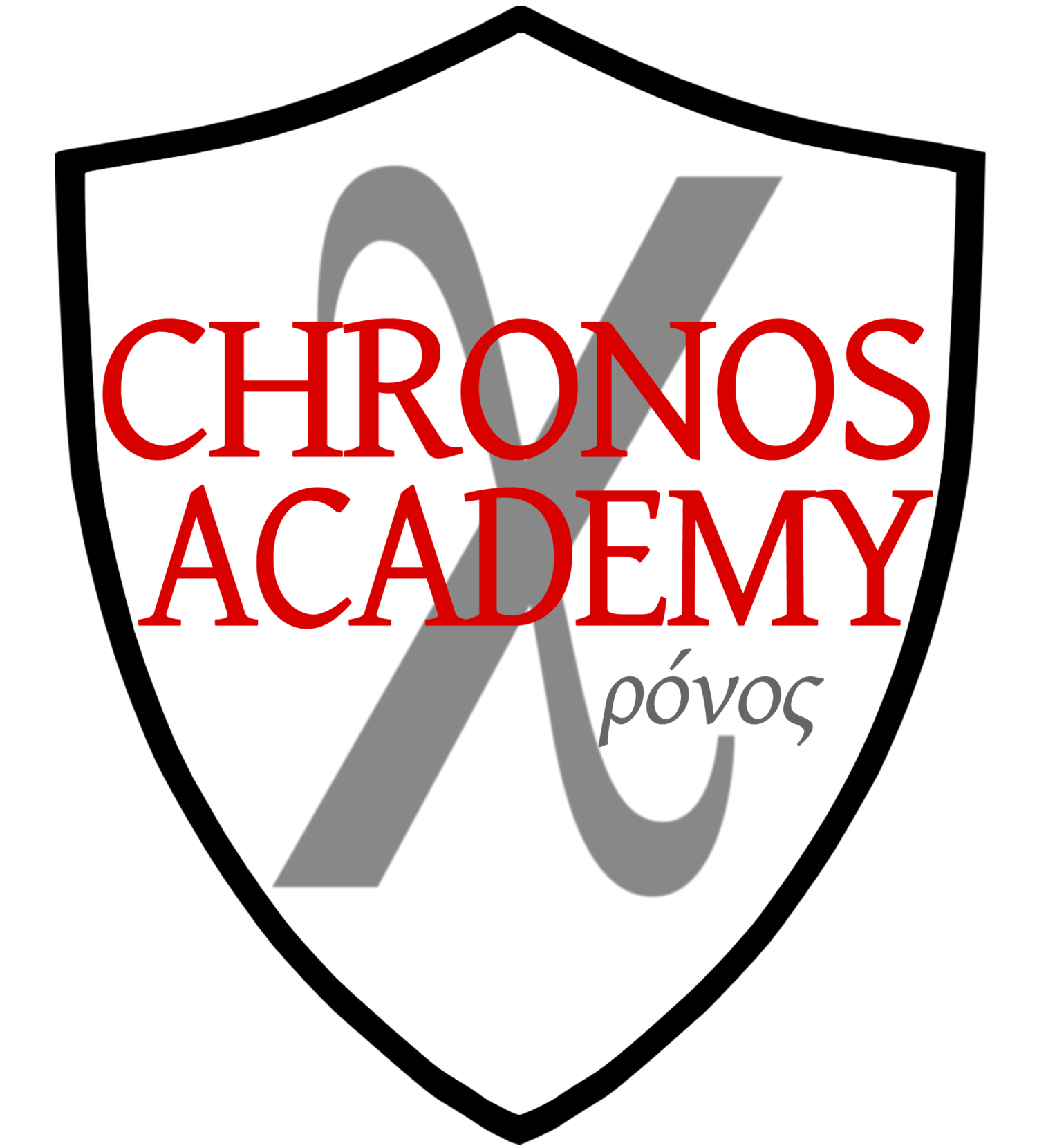Middle Ages Week 26
/Thursday Cohorts
Grammarians
PreK-4th graders
History: In 1492 Spanish Queen Isabella sent Columbus west to find a route to India. After Amerigo Vespucci they named it America. But Vasco da Gama sailed east around Africa to India. In 1519 Magellan sailed west from Spain, crossed South America and died in the Philippines, but one ship circumnavigated the globe.
Learn more on Khan Academy
Read The Story of the World, Vol. 2, Chapter 31 and do the activities in the Activity Guide.
Geography: Draw Oceania and label these countries:
Palau
Micronesia
Marshall Islands
Nauru
Kiribati
Papua New Guinea
Solomon Islands
Practice memorizing the countries with this game!
Science: Memorize these medieval astronomical tools:
celestial globe
armillary sphere
mechanical calendar
sundial
quadrant
equatorium
torquetum
triquetrum
Math: Memorize The law of cosines states c^2=a^2+b^2-2ab cos C
Learn more about Law of Cosines on Khan Academy.
Greek: Memorize this Greek vocabulary
γίνομαι I become
ἀποκρίνομαι I answer (takes the dative)
ἄρχομαι I begin
δέχομαι I receive
ἔρχομαι I come, I go
English:
Nominative case personal pronouns: I you he she it we you they
Learn more about pronouns on Grammar Revolution.
Presentation: Prepare a presentation on one of these activities or another topic you’ve been learning and share with the class next week!
Writing Club (3-4th)
Medieval History-Based Writing: Complete Lesson 23: “The Twenty-First-Century Descriptive Letter”
Diagram Week 26 sentences.
Lower Dialecticians (5-6th grades)
Writing: Pick an explorer and write three journal entries (captain’s logs) from significant days in his life. This will require a bit of research. Be sure to include stylistic techniques such as -ly adverb, quality adjective, strong verb, who/which clause, www.asia.b clause, a variety of sentence openers, and an alliteration or simile/metaphor or conversation and label them all in the margin. Be ready to present your final draft next week.
Presentation: Research and prepare a notecard keyword outline for your presentation this week. Don’t write it out word for word, and do bring a note card of your key word outline - you’ll forget what you learned! Here are some of the topics you picked in class:
History - Columbus, Vespucci, da Gama, Magellan.
Literature - A little about The Ship of Fools by Sebastian Brant.
Art - Catalina & Jocelyn - The Martellus Map 1491 is in the Yale University collection. Did Christopher Columbus read it?
Math and Science - Regiomontanus was the most important astronomer in the 1400s. This was the painting in science. Zoom way in to see very specific details!
Geography - Gino & Phoebe - The Columbian Exchange.
Philosophy - Tsongkhapa.
History: In 1492 Spanish Queen Isabella sent Columbus west to find a route to India. After Amerigo Vespucci they named it America. But Vasco da Gama sailed east around Africa to India. In 1519 Magellan sailed west from Spain, crossed South America and died in the Philippines, but one ship circumnavigated the globe.
Learn more on Khan Academy
Read The Story of the World, Vol. 2, Chapter 31 and do the activities in the Activity Guide.
Geography: Draw Oceania and label these countries:
Palau
Micronesia
Marshall Islands
Nauru
Kiribati
Papua New Guinea
Solomon Islands
Practice memorizing the countries with this game!
Science: Memorize these medieval astronomical tools:
celestial globe
armillary sphere
mechanical calendar
sundial
quadrant
equatorium
torquetum
triquetrum
Math: Memorize The law of cosines states c^2=a^2+b^2-2ab cos C
Learn more about Law of Cosines on Khan Academy.
Greek: Memorize this Greek vocabulary
γίνομαι I become
ἀποκρίνομαι I answer (takes the dative)
ἄρχομαι I begin
δέχομαι I receive
ἔρχομαι I come, I go
English:
Nominative case personal pronouns: I you he she it we you they
Learn more about pronouns on Grammar Revolution.
Diagramming: Choose sentences 1-6 or 7-8 challenge sentence below. Complete question confirmation & label each word in the sentence, state structure, purpose & patterns for each and diagram Week 26 sentences:
1. Did Columbus consider the new world a continent, and did Amerigo Vespucci name it America after himself?
2. Who considers Immanuel Kant's philosophy important, and who studies it diligently?
3. Who declared themselves the Constitutional Congress that wrote the Constitution in 1787, and where did they meet?
4. Hegel considered "absolute idealism" effective; the message will prevail, whereas the messenger is inconsequential?
5. Did Georg Friedrich Gauss teach Bernhard Riemann mathematics, because he considered Riemann intelligent, and later did Riemann present a hypothesis which remains unsolved?
6. The Pope almost crowned Napoleon Consul in 1802, although he took the crown in his hands and crowned himself in the end?
7. ***Challenge***In 1519 Magellan sailed west from Spain, crossed South America and died in the Philippines; however, one of his ships successfully circumnavigated the globe.
8. “Nonetheless, before the stream of this life Flowing towards death has come to cease That I have found slight faith in you— Even this I think is fortunate.“ Tsongkhapa
Upper Dialecticians 7th-9th Graders
From our session Thursday 3/29 - Please read this, watch the videos and choose one topic for your presentation and one for your writing assignment. BEFORE Monday 4/2/18:
History - Columbus, Vespucci, da Gama, Magellan.
Literature - A little about The Ship of Fools by Sebastian Brant.
Art - The Martellus Map 1491 is in the Yale University collection. Did Christopher Columbus read it?
Math and Science - Regiomontanus was the most important astronomer in the 1400s. This was the painting in science. Zoom way in to see very specific details!
Geography - The Columbian Exchange.
Philosophy - Tsongkhapa.
Writing: Everyman is a morality play that personifies abstract ideas. Create a 1-3 paragraph narrative scene in which a person speaks with an idea. For example, a highschooler is playing lacrosse and crosses the out-of-bounds line. He isn’t called by the referee. Freeze scene: Player talks with Sportsmanship, Honesty and Competitiveness.
History: In 1492 Spanish Queen Isabella sent Columbus west to find a route to India. After Amerigo Vespucci they named it America. But Vasco da Gama sailed east around Africa to India. In 1519 Magellan sailed west from Spain, crossed South America and died in the Philippines, but one ship circumnavigated the globe.
Learn more on Khan Academy
Read The Story of the World, Vol. 2, Chapter 31 and do the activities in the Activity Guide.
Geography: Draw Oceania and label these countries:
Palau
Micronesia
Marshall Islands
Nauru
Kiribati
Papua New Guinea
Solomon Islands
Practice memorizing the countries with this game!
Science: Memorize these medieval astronomical tools:
celestial globe
armillary sphere
mechanical calendar
sundial
quadrant
equatorium
torquetum
triquetrum
Math: Memorize The law of cosines states c^2=a^2+b^2-2ab cos C
Learn more about Law of Cosines on Khan Academy.
Greek: Memorize this Greek vocabulary
γίνομαι I become
ἀποκρίνομαι I answer (takes the dative)
ἄρχομαι I begin
δέχομαι I receive
ἔρχομαι I come, I go
English:
Nominative case personal pronouns: I you he she it we you they
Learn more about pronouns on Grammar Revolution.
Diagramming: Choose sentences 1-6 or 7-8 challenge sentence below. Complete question confirmation & label each word in the sentence, state structure, purpose & patterns for each and diagram Week 26 sentences:
1. Did Columbus consider the new world a continent, and did Amerigo Vespucci name it America after himself?
2. Who considers Immanuel Kant's philosophy important, and who studies it diligently?
3. Who declared themselves the Constitutional Congress that wrote the Constitution in 1787, and where did they meet?
4. Hegel considered "absolute idealism" effective; the message will prevail, whereas the messenger is inconsequential?
5. Did Georg Friedrich Gauss teach Bernhard Riemann mathematics, because he considered Riemann intelligent, and later did Riemann present a hypothesis which remains unsolved?
6. The Pope almost crowned Napoleon Consul in 1802, although he took the crown in his hands and crowned himself in the end?
7. ***Challenge***In 1519 Magellan sailed west from Spain, crossed South America and died in the Philippines; however, one of his ships successfully circumnavigated the globe.
8. “Nonetheless, before the stream of this life Flowing towards death has come to cease That I have found slight faith in you— Even this I think is fortunate.“ Tsongkhapa
Tuesday classes
Book Club: Keep reading your Medieval Book Club books at home, and be ready to present a critique in class. The older classes will continue reading The Kite Rider, and the younger classes will continue The Apple and the Arrow in class.
MAKE: History: We’ll read about Explorers in Story of the World Chapter 31 and weave Filipino puso.
Drawing out Arithmetic: In class we’ll continue Book 5 definitions and study proportions!
Greek: Complete & study lesson 26 for our quiz! We’ll start Greek Workbook Lesson 27.
Wednesday classes
Make Science: In class we’ll learn more about Johannes Muller (Regiomontanus).
Math Club: Learn about Johannes Muller (Regiomontanus) and the Law of Cosines.
Art Appreciation: Learn about South African Ndebele Patterns.
Writing Club Homework: DUE ON APRIL 18, 2018
Upper Dialecticians (7-9) and Lower Dialecticians (5-6)
IEW Medieval History-Based Writing Lessons:
Lesson 23: “The Twenty-First-Century Descriptive Letter”. Read “The Assignment” on page 164. Pretend you are a peasant (or Noble man or women) of the Middle Ages who has traveled into the twenty-first century. Use the questions on page 165 to give you some ideas as you write a letter to your friend or family member in the Middle Ages. Use five-senses descriptive language to make your letter come alive! Read page 240 for a sample of such a letter. Remember to use page 166 to make a Key Word Outline like Mars did in class. Use the checklist on page 168 to be sure you have added all of the elements of STRUCTURE and STYLE. We have a new opener this week: number 4. Remember to label it in the margin of your paper. Try to add vocabulary for extra points!
Fix it! Grammar:
Complete Week 25 in your book and copy the corrected paragraph into your notebook. Review the Grammar Cards in the back of your notebook. They really help! Suggestion: use two different colored pencils to correct the punctuation and parts of speech. Review in preparation for next week!
Upper Grammarians (3-4):
IEW Medieval History-Based Writing Lessons:
Lesson 23: “The Twenty-First-Century Descriptive Letter”. Read “The Assignment” on page 164. Pretend you are a peasant (or Noble man or women) of the Middle Ages who has traveled into the twenty-first century. Use the questions on page 165 to give you some ideas as you write a letter to your friend or family member in the Middle Ages. Use five-senses descriptive language to make your letter come alive! Read page 240 for a sample of such a letter. Remember to use page 166 to make a Key Word Outline like Mars did in class. Use the checklist on page 168 to be sure you have added all of the elements of STRUCTURE and STYLE. Try to add vocabulary for extra points!
Fix it! Grammar:
Complete Week 25 in your book. Copy the corrected paragraph into your notebook. Review the Grammar Cards in the back of your notebook. They really help! Suggestion: use two different colored pencils to correct the punctuation and parts of speech. Review in preparation for next week!



